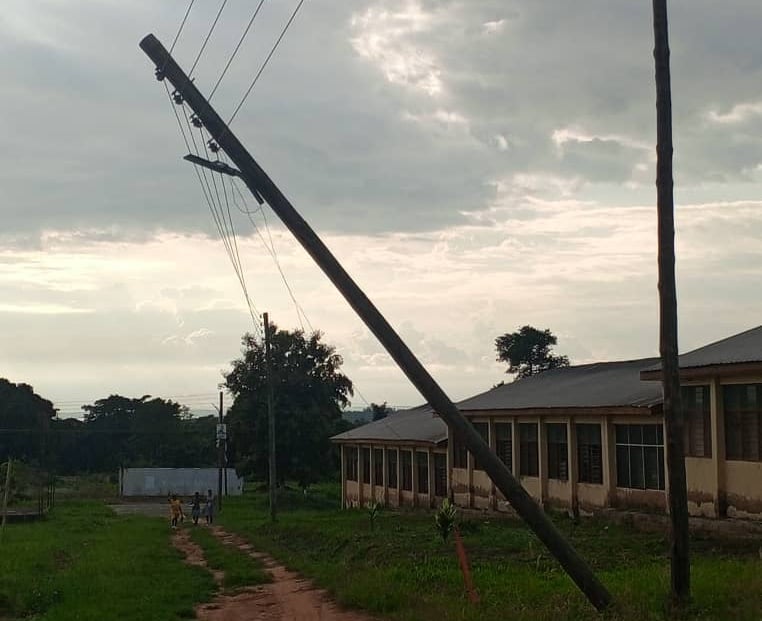The Biakoye Community Senior High School at Nkonya Wurupong is grappling with a looming safety crisis stemming from a severely compromised electricity pole situated on school grounds. This pole, under the purview of the Electricity Company of Ghana (ECG), has deteriorated to a precarious state, its base weakened and the entire structure leaning dangerously. The situation is further exacerbated by loose, dangling wires, creating a palpable fear of imminent collapse, potentially leading to electrocution, fire, or other catastrophic consequences. This hazardous infrastructure poses a significant threat to the safety and well-being of the entire school community, including students, teachers, and staff, as well as nearby residents. The precarious pole hangs like a sword of Damocles over the school, casting a long shadow of anxiety and uncertainty over daily activities.
The gravity of the situation is amplified by the fact that this issue has persisted for an extended period, despite repeated expressions of concern. The school community has witnessed the pole’s progressive deterioration, their apprehension growing with each passing day. The threat escalates dramatically during periods of inclement weather, as rain and strong winds further destabilize the already fragile structure. Every gust of wind, every downpour, brings with it renewed fear and a heightened sense of urgency. The pole has become a constant reminder of the potential for disaster, a ticking time bomb that casts a pall over the learning environment.
The concerned community, comprised of students, teachers, and residents, has identified the decaying pole as a serious hazard requiring immediate attention. They live with the constant awareness of the potential consequences of inaction, knowing that the pole’s eventual collapse is not a matter of “if” but “when.” The loose wires, swaying precariously in the wind, serve as a stark visual reminder of the potential for electrocution. The dry vegetation surrounding the pole heightens the risk of fire, particularly during the dry season. This combination of factors has created an atmosphere of apprehension and a growing sense of urgency within the community.
Reports indicate that the school administration and concerned community members have formally notified the Electricity Company of Ghana (ECG) about the dangerous condition of the pole. Despite these complaints, no remedial action has been taken to address the problem. This lack of response has fueled frustration and a sense of abandonment within the community, leaving them feeling vulnerable and exposed to a preventable danger. The continued inaction by the ECG has amplified the sense of urgency, as the community fears that the pole could collapse at any moment, resulting in a tragic incident.
Given the ECG’s apparent lack of responsiveness, the school community and residents are appealing directly to the company through various channels, imploring them to take swift and decisive action to replace the damaged pole. They are emphasizing the imminent danger the pole represents and the potential for catastrophic consequences if it were to fall. Their pleas underscore the urgency of the situation and the need for immediate intervention to avert a potential tragedy. They are calling upon the ECG to fulfill its responsibility to ensure the safety and well-being of the community it serves.
The situation at Biakoye Community Senior High School underscores the critical need for proactive maintenance and timely response to infrastructure issues, particularly those involving public safety. The decaying electricity pole serves as a stark reminder of the potential consequences of neglecting essential infrastructure. The school community’s pleas for help highlight the importance of corporate responsibility and the vital role that utility companies like ECG play in ensuring the safety of the communities they serve. The incident also brings to light the need for effective communication channels between utility providers and the public, enabling timely reporting and prompt resolution of safety concerns. This case serves as a valuable lesson in the importance of proactive maintenance and the potentially devastating consequences of delayed action.


